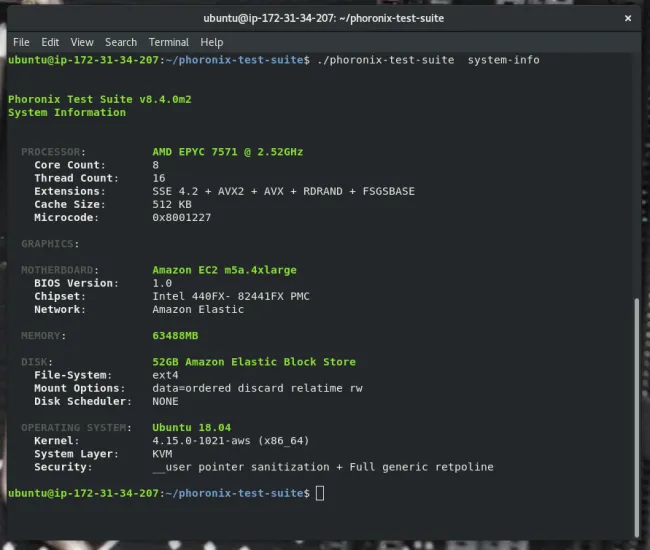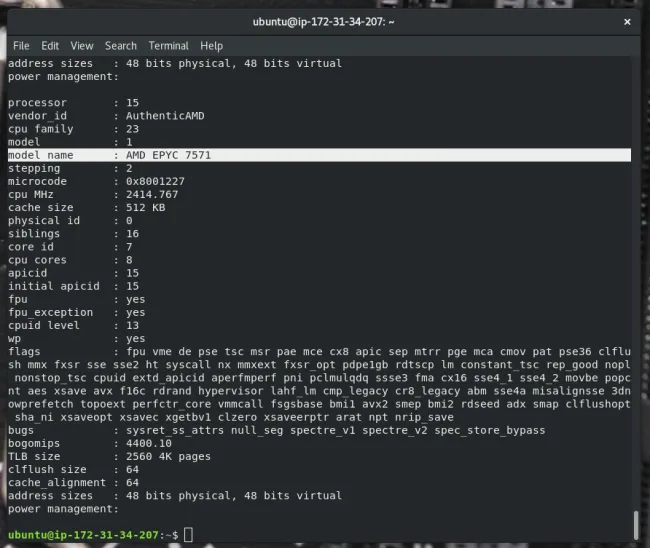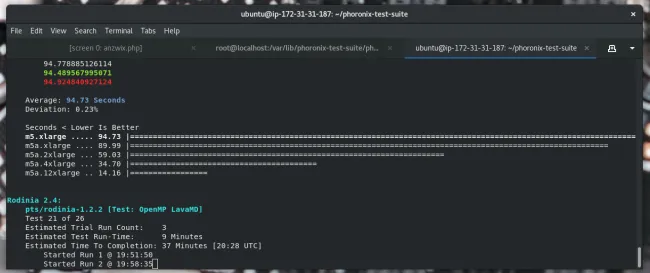A Look At The AMD EPYC Performance On The Amazon EC2 Cloud
Of the announcements from yesterday's AMD Next Horizon event, one that came as a surprise was the rolling out of current-generation EPYC processors to the Amazon Elastic Compute Cloud (EC2). Available so far are the AMD-powered M5a and R5a instance types to offer Amazon cloud customers more choice as well as being priced 10% lower than comparable instances. Here are some initial benchmarks of the AMD performance in the Amazon cloud.
Initially the AMD EPYC instances on EC2 are the M5a "general purpose" and R5a "memory optimized" instance types. For the purposes of this initial benchmarking over the past day, I focused on looking at the general purpose performance using the m5a.xlarge, m5a.2xlarge, m5a.4xlarge, and m5a.12xlarge sizes. More details on the different AMD EPYC options available can be found via this AWS blog post. Amazon will also be rolling out T3a instances in the near future as well.
Amazon says these new AMD instances are powered by "custom AMD EPYC processors running at 2.5 GHz." In the testing of the M5a instance types, the reported CPU is an AMD EPYC 7571 at 2.5GHz and comprised of 32 cores / 64 threads, granted depending upon the instance type is just a subset of that computing capacity. The EPYC 7571 isn't publicly available but appears to be a slightly faster version of the EPYC 7551.
With the AMD M5a instance types I compared them to the Intel-powered M5 instance types of the same size. These Intel-based instances offer the same vCPU and ECU ratings as well as the available system memory and other factors, but the EPYC-based instances are about 10% cheaper thanks to the more competitive pricing with AMD's current server hardware. The Intel M5 instances were using Xeon Platinum 8175M processors.
Via the Phoronix Test Suite a range of benchmarks were carried out between these instances not only looking at the raw performance but also the performance-per-dollar for the on-demand cloud instance pricing in the US West (Oregon) region where the testing was carried out.
Amazon EC2 isn't the only cloud service offering EPYC CPUs but among others is also SkySilk. Hopefully in the coming days I'll have the time to wrap up some multi-cloud benchmark comparisons for performance and value. While benchmarking all of the instances, Ubuntu 18.04 LTS with the Linux 4.15 kernel was utilized. The default Spectre/Meltdown mitigations on each platform were active.



